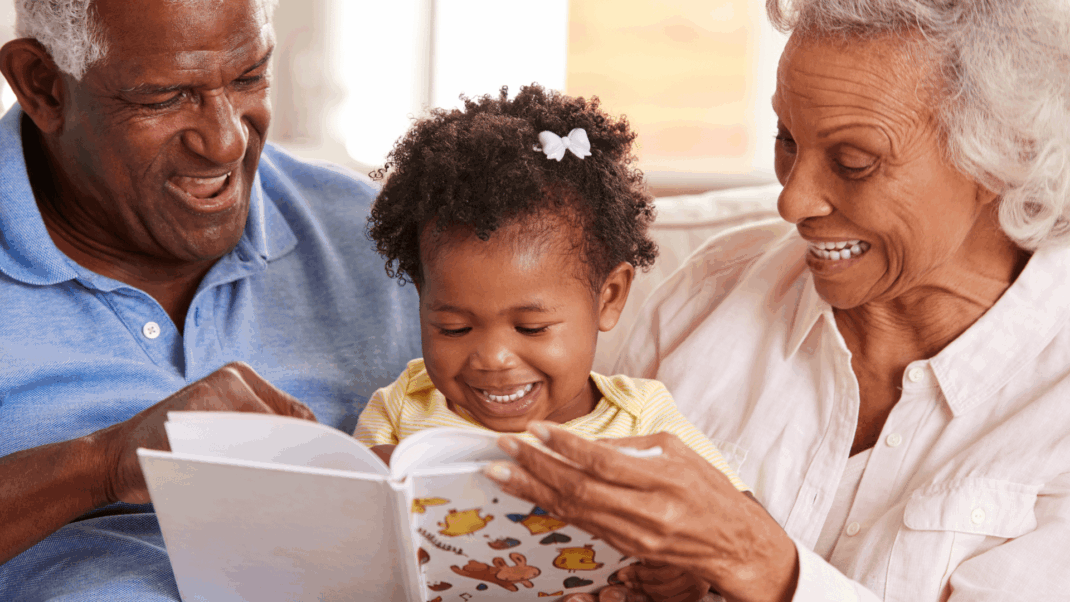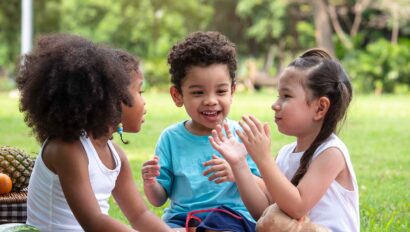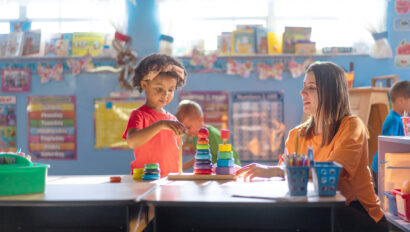How Intergenerational Learning Helps Children Thrive in Red Lion

Some of the most meaningful learning happens during the simplest moments.
A grandparent sharing a memory. A neighbor reading a story. A child handing a snack to someone older with a big, curious smile.
These interactions build more than just fond memories. They shape how children grow—emotionally, socially, and even cognitively. And according to leading early childhood organizations like NAEYC and Generations United, building relationships across generations helps children become more empathetic, confident, and connected to the world around them.
Intergenerational learning simply means bringing people of different ages together to share experiences, knowledge, and skills—benefiting everyone involved. In early childhood settings, that often looks like children and older adults engaging in play, storytelling, and daily activities that foster mutual respect and understanding.
Examples of Intergenerational Play in a Preschool Setting
One thoughtful model of this in action is Punkin Patch Childcare, a program that pairs children with older adults in a shared care environment. On a typical day, children and seniors come together for activities like reading, music, movement, and meals. What makes this approach so effective is how natural the connections become—no forced programming, just daily routines where relationships are given space to grow.
How do intergenerational activities help kids?” According to the program, children show improved communication skills, more regulated emotions, and deeper social awareness. At the same time, older adults feel more socially engaged and energized from their time with children. It’s a win for both generations.
Even if your school or city doesn’t have a formal intergenerational program, the lessons are clear: children thrive when they have regular, meaningful relationships with people of all ages.
Examples of Intergenerational Learning in Play-Based Learning
Play-based learning encourages children to explore, move, and create. When older adults are included in that experience, children naturally begin to listen more closely, ask thoughtful questions, and build compassion through action.
- A toddler offering a toy to a senior friend
- A preschooler asking, “What was your favorite game when you were little?”
- A group of children and seniors singing or painting side by side
These small, joyful moments reinforce everything that play-based learning is built on: connection, curiosity, and care.
Top Benefits of Intergenerational Relationships for Children
Intergenerational play supports growth in all the right ways:
- Empathy: Children see firsthand how others experience the world
- Confidence: They learn to communicate across age groups
- Patience: They slow down, listen, and respond with care
- Language and cognitive skills: Conversations with older adults expose children to rich vocabulary and storytelling
- Early childhood development: These interactions strengthen foundational skills—like attention, problem-solving, and memory—that support school readiness and lifelong learning
Meanwhile, older adults experience renewed purpose, mental stimulation, and a boost in well-being—proving these connections truly go both ways.
Families Are Craving These Connections
In many households today, grandparents and extended relatives live far away. Schedules are full, and quality time with older adults can be limited. But that doesn’t mean children have to miss out.
Even small, consistent opportunities—like classroom visits, short video calls, or sharing a favorite recipe or story—can help children feel more grounded and connected.
And in a school setting that values this type of interaction, those moments are built into the rhythm of the day—not added on as an extra.
A More Human Way to Learn
Play-based education is about more than academics. It’s about nurturing kind, curious, emotionally resilient humans.
When older adults are part of that journey, children don’t just learn about empathy—they practice it. They don’t just read about respect—they live it.
See How It Comes to Life at Our School
In Red Lion, we believe children learn best through connection—and that every child deserves to feel seen, heard, and supported. Our play-based approach nurtures confidence, creativity, and meaningful relationships—including opportunities for intergenerational learning whenever possible such as celebrating Grandparent’s Day every September!
Schedule a tour of our school today
Let’s build something beautiful together—for your child, your family, and our community.


